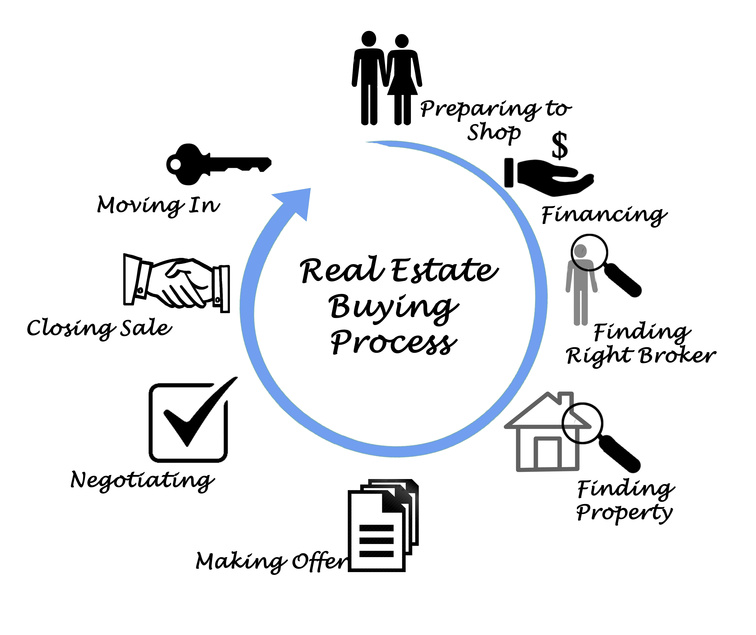Understanding the Property-Based Requirements of Georgia hard money lenders
The Role of Hard Cash Loans in Real Estate Deals: What You Need to Know
Difficult cash fundings are a crucial funding tool in genuine estate transactions. They provide capitalists quick accessibility to funding, especially in urgent situations. Secured by real residential property, these fundings concentrate on property worth instead of the debtor's credit report history. Nevertheless, they feature significant risks and prices. Comprehending the nuances of hard money loans is vital for anybody seeking to browse this complicated economic landscape successfully. What variables should investors take into consideration prior to proceeding?
What Are Difficult Money Loans?
Hard cash lendings work as an essential funding choice in realty deals, especially for investors looking for quick access to funding. Unlike conventional finances, hard money fundings are protected by real estate and are primarily based upon the worth of the asset instead of the debtor's credit reliability. These finances are commonly provided by personal loan providers or financiers, making it possible for borrowers to bypass prolonged approval processes connected with conventional financing.
Tough cash finances are commonly short-term solutions, with repayment durations varying from a couple of months to a few years. Due to their expedited nature, they are preferred among realty fins and those needing immediate funds for residential property purchase or rehabilitation. Rates of interest for tough cash car loans tend to be greater than typical fundings, showing the boosted risk lenders embark on. On the whole, tough cash lendings meet an essential role in the actual estate market, satisfying those that call for flexibility and rate in their funding choices.
Benefits of Hard Money Loans
While conventional funding can be sluggish and cumbersome, hard cash financings supply several distinctive advantages that interest investor. One key advantage is the speed of the financing process; fundings can frequently be authorized and funded within days, enabling financiers to take chances rapidly. This rapid turnaround is particularly beneficial in open markets where time is essential.
Additionally, tough money financings are largely asset-based as opposed to credit-based, indicating that financiers with less-than-perfect credit report can still safeguard funding. This accessibility enables a wider variety of capitalists to take part in realty transactions.
Moreover, hard money lenders typically have much more adaptable terms and problems compared to typical lenders, permitting for tailored settlement strategies customized to private job requirements. This adaptability can enhance a financier's ability to manage capital successfully throughout improvement or resale phases. In general, these benefits make difficult money loans an engaging choice for numerous genuine estate ventures.
Possible Downsides to Take Into Consideration
While hard money car loans can provide fast funding, potential drawbacks require careful factor to consider. Debtors frequently encounter greater rates of interest compared to typical funding, which can increase total expenses. Furthermore, the much shorter repayment terms may push debtors to safeguard refinancing or market the home earlier than anticipated.
Higher Rate Of Interest
Greater rates of interest represent a substantial factor to consider in hard cash lendings, especially in genuine estate deals. These fundings typically come with rates that are substantially greater than conventional funding alternatives, typically varying from 8% to 15%. This elevated cost can impact the overall profitability of a property investment, as debtors may discover themselves designating a larger section of their spending plan to passion payments. In addition, the high prices can produce difficulties for capitalists seeking to utilize their funding efficiently. For those who are not gotten ready for these economic ramifications, the problem of high-interest repayments can lead to capital concerns, ultimately affecting the success of the home investment. As a result, understanding the implications of greater rates of interest is vital for prospective consumers.
Shorter Settlement Terms
Much shorter settlement terms are a defining feature of tough cash lendings, which can offer numerous difficulties for consumers. Typically varying from six months to 3 years, these terms require customers to pay off the financing rapidly, frequently resulting in economic pressure. The stress to create returns within a minimal duration can push debtors to rush home improvements or sales, possibly endangering the quality of the investment. Additionally, the need of a quick exit strategy may limit options for refinancing or marketing, leading to higher dangers. Debtors must thoroughly consider their economic abilities and market conditions to avoid defaulting on these loans, which can cause the loss of the collateralized residential property.
Exactly How Hard Money Financings Function
Difficult cash fundings run with a special framework that focuses on possession value over credit reliability. The approval process is typically quick, enabling debtors to gain access to funds quickly compared to standard a knockout post financing. In addition, an evaluation of rates of interest reveals that difficult cash car loans frequently lug higher prices, mirroring the increased risk taken by loan providers.
Loan Structure Explained

In property deals, comprehending the framework of hard money finances is crucial for investors looking for fast financing. Difficult money loans are normally protected by real estate, with the home functioning as collateral. These financings generally entail higher rates of interest contrasted to conventional funding, mirroring the increased danger taken by loan providers. The financing terms are normally short, usually varying from 6 months to 3 years, facilitating rapid access to funding. Financing amounts can vary considerably, commonly depending upon the building's value instead than the customer's credit reliability. Investors take advantage of the expedited authorization procedure, enabling them to seize financial investment chances immediately. On the whole, the structure of difficult money financings accommodates those needing quick, versatile funding choices in property markets.
Approval Process Introduction
The approval process for difficult cash lendings is distinctive from conventional lending methods, largely concentrating on the collateral instead than the borrower's credit profile. Lenders evaluate the value of the home being utilized as security, guaranteeing it satisfies their criteria for threat evaluation. Once a building is determined, consumers submit a loan application that consists of information about the residential or commercial property and the meant usage of funds (Georgia hard money lenders). The lender performs a quick appraisal and might call for added paperwork, yet the process is usually accelerated compared to traditional car loans. Approval often occurs within days, enabling borrowers to access funds rapidly. This streamlined strategy is advantageous genuine estate investors seeking fast financing solutions for purchase or improvement projects
Rate Of Interest Comparison
While tough money car loans supply fast accessibility to funds, their rate of interest are commonly greater than those of conventional home mortgages. Debtors can expect prices ranging from 8% to 15%, depending on the loan provider and the specifics of the deal. In contrast, traditional mortgage prices normally fall between 3% and 6%. The greater prices connected with tough cash financings show the increased risk lending institutions take, as these fundings are often safeguarded by the residential or commercial property itself instead of the consumer's creditworthiness. This means that while hard money car loans can promote swift financing genuine estate financial investments, they can also bring about significantly higher expenses with time, making it essential for customers to thoroughly review their monetary situation prior to proceeding.
When to Utilize Difficult Money Financings
When is it sensible to consider tough money financings in genuine estate transactions? Financiers typically take into consideration these loans in circumstances where conventional financing is either unwise or not available. Tough money lendings can be valuable for residential properties calling for quick acquisition, such as foreclosure public auctions or troubled residential or commercial properties requiring immediate restorations.
Furthermore, actual estate investors looking for to maximize time-sensitive opportunities, like flipping residences, may find hard cash loans helpful due to their expedited authorization process. Additionally, customers with less-than-perfect credit scores or unusual homes may likewise choose tough money financing, as lenders primarily concentrate on the residential property's value rather than the customer's financial history.

Tips for Selecting a Difficult Money Lending Institution
How can capitalists ensure they pick the right tough money lender for their realty demands? First, complete study is important. Financiers must review prospective lending institutions by reviewing their experience, credibility, and customer testimonies. It is a good idea to choose lending institutions that specialize in the type of building being financed, as this can improve the chance of positive terms.
Next, comprehending the lending institution's terms is substantial. Investors must ask about passion rates, costs, and repayment routines. Clear communication is crucial; loan providers need to agree to make clear any type of uncertainties.
Furthermore, reviewing the Home Page lending institution's funding speed and flexibility can be useful, particularly in open markets. Investors must additionally take into consideration constructing a connection with the loan provider, as a good relationship can assist in smoother transactions. Finally, speaking with sector professionals or realty agents can offer further understandings and suggestions, ensuring a knowledgeable decision.
Often Asked Inquiries
Can Hard Cash Loans Be Made Use Of for Business Properties?
Difficult money financings can certainly be utilized for business residential or commercial properties, using quick funding choices for investors - Georgia hard money lenders. These financings are generally safeguarded by the home itself, allowing borrowers to access funds without traditional financing requirements
What Is the Typical Loan-To-Value Proportion for Hard Cash Loans?
The typical loan-to-value ratio for tough money finances generally varies from 60% to 75%. This ratio differs based upon the residential property type, lender policies, and individual customer scenarios, showing the higher danger related to these fundings.
Are Difficult Money Fundings Available to First-Time Buyers?
Difficult cash fundings can be easily accessible to first-time property buyers, though terms vary by loan provider. These finances often have greater rate of interest and much shorter settlement periods, making them a less conventional choice for brand-new customers.
Just How Quickly Can I Close on a Difficult Money Funding?
The rate of closing on a difficult money financing can vary, yet generally it varies from a couple of days to a number of weeks, depending upon the loan provider's requirements and the borrower's financial situation. (Georgia hard money lenders)
What Papers Are Required to Apply for a Tough Money Funding?

Unlike conventional finances, tough cash finances are safeguarded by actual residential or commercial property and are largely based on the worth of the asset rather than the customer's credit reliability. Interest rates for difficult cash fundings tend to be higher than traditional car loans, reflecting the increased risk lenders take on. The approval process for tough cash car loans is distinctive from conventional borrowing approaches, mainly focusing on the collateral rather than the borrower's credit scores profile. The higher prices linked with hard money fundings mirror the enhanced threat lending institutions take, as these finances are frequently secured by the residential or commercial property itself rather than the borrower's credit reliability. To use for a hard cash funding, debtors usually need to offer residential or commercial property info, a funding application, evidence of revenue, credit rating history, and recognition.